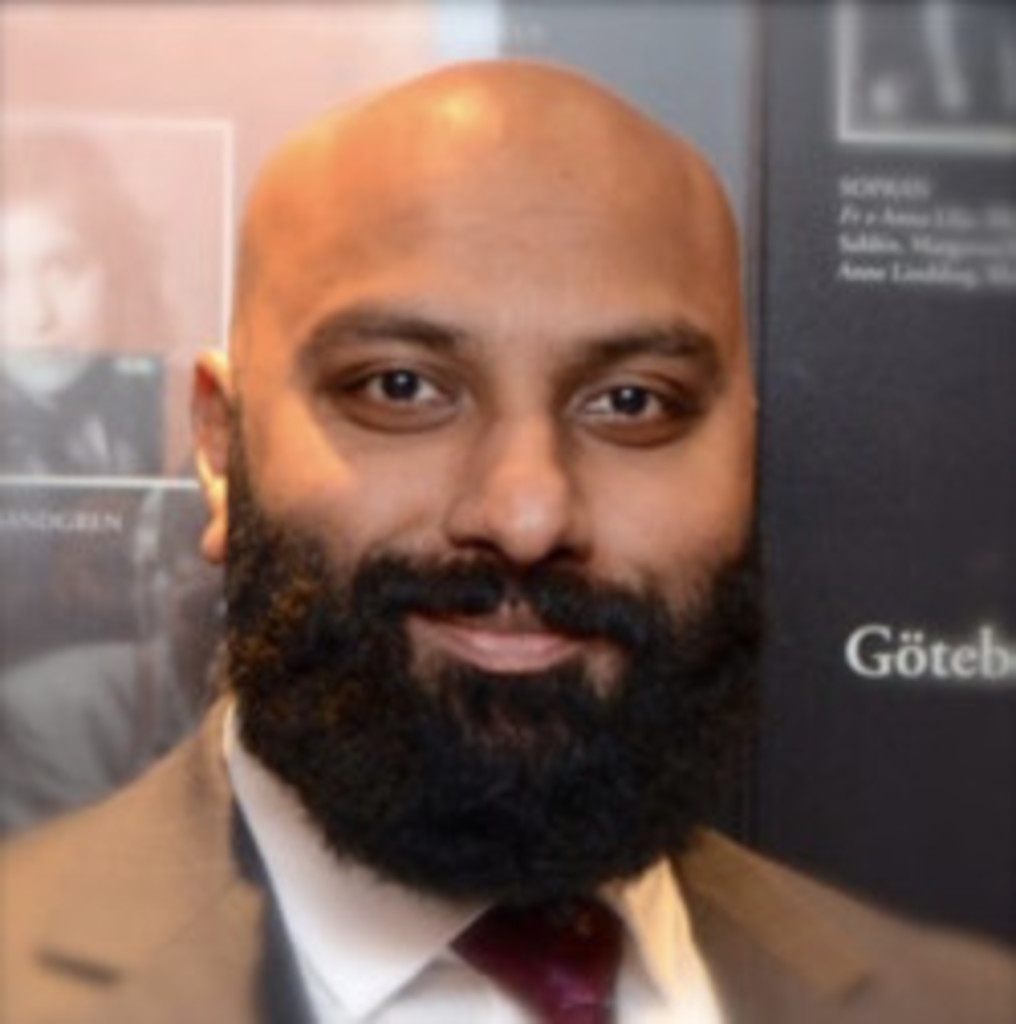
Brian Sims
Editor

Brian Sims
Editor
‘BE A part of history’. That’s the tagline for the latest research project spearheaded by the International Foundation for Protection Officers (IFPO) in collaboration with Perpetuity Research. As Peter Stiernstedt explains, the basic aim of that project is to more clearly define the roles, responsibilities and duties of today’s security officers while also taking full account of the perceived complexities therein.
The scope of this research study – which is being run under the heading ‘Exploring the Modern Role and Job Complexity of Security Officers’ – is all about understanding the range of duties undertaken by security officers, the tasks for which they’re responsible, the types of tasks they find the most difficult and those they deem the easiest, the complexity of these various tasks, the skills and knowledge required to complete these duties, the tasks they undertake (from the common to the rare) and the extent to which (and how) tasks undertaken overlap with those apportioned to other workers.
Ultimately, the hope is that this research will inform decision-making in the sector going forward and actively assist in improving and delineating the career path for those operating on the front line.
The scope and size of this study is only paralleled by its ambition to create a better understanding of security officers and their role in the 21st Century. The rationale is very much based on (and around) the essential role that private security often plays – and increasingly so – in contemporary society.
The Plato analogy
The drive towards increasing our understanding of the world that we inhabit, various individuals’ working roles within it and the latter’s day-to-day responsibilities readily lends itself to an analogy involving Plato.
When waxing lyrical about his theory of forms in Book 7 of the Republic, Plato exquisitely introduces the allegory of the cave. Notwithstanding the high level of abstraction for the notion of Plato’s theory of forms, there are many parallels that could be drawn from a philosophical theory to practical applicability.
It’s suggested that the intrinsic point of ‘doing philosophy’ is to establish a rational consensus about what the answers to specific questions really are. There are undoubtedly many questions to be asked as part of the IFPO’s research project and these may, just as in the allegory of the cave, enlighten us as to the reality of the ‘lot’ of the modern day security/protection officer.
In the allegory, Plato imagines a cave wherein people are chained and facing the inner wall. They’re born in the cave to a life in chains and are never allowed to leave. They can see something of the world outside through the dancing shadows on the wall projected by the light at the entrance to the cave.
Here, the parallel with the private security industry is that, while we think we know what we’re looking at – and, subsequently, doing about it – is it in fact the right thing to do given the available information to hand? Doing what we perceive to be correct isn’t necessarily the best course of action.
Overwhelmed by new impressions
It’s important to understand that, from the perspective of the individuals who find themselves inside the cave, the shadows are the reality in much the same way that apparent threats assessed to the best of their ability – and the protective procedures subsequently enacted by them to the limit of their capacity – are the reality for operatives in the private security world.
Arguably, there’s a lack of awareness that the shadows are nothing but a pale reflection of a much more complex and nuanced world. Security officers are often operating under somewhat difficult conditions and in ways that are hard to abandon, at least in part because this scenario has always been the status quo. Thus, they’re left with little alternative but to keep fighting against the perceived threats appearing right in front of them.
In line with Plato’s musings, imagine an episode whereby one of the cave dwellers is somehow freed of their chains and able to venture outside. Their senses will inevitably be overwhelmed by numerous new impressions. At first, they’ll struggle to understand what’s going on. Given time and thought, though, they’ll start to absorb the new information around and about them and realisations more closely aligned with what the world really is all about will slowly but surely begin to form.
These are the types of realisations that are absolutely central to the IFPO’s new research project and, indeed, a hallmark of previous research projects so ably conducted by Perpetuity Research. There’s an overriding desire to generate meaningful insights into the multitude of roles and responsibilities of security personnel at various levels and in various business sectors in order to, inter alia, assist in guiding the development of instruction programmes and training in the months and years to come.
Meeting with disbelief
As Plato outlines in the cave allegory, there’s a risk that, when returning to the cave eager to tell others about their discoveries, any returnees are going to be met with disbelief. Even worse, their account of events outside the cave, albeit detailed and no matter how veraciously delivered, could well be dismissed out of hand and perhaps even mocked.
Not yet enlightened by the tales of the true nature of the world, those still inside the cave are likely not going to be willing to change in terms of either their mindset or their methods (and particularly so since shadow watching takes little or no effort while, by definition, change most certainly does).
In essence, then, the impassioned oration of what the cave dwellers may deem to be a pompous intellectual will not sway them, and they’ll simply continue watching the shadows in an atmosphere of self-contentment.
Inevitably, change is coming to us all. That has been amply evidenced since COVID-19 reared its ugly head. The 21st Century is increasingly setting us challenges like Coronavirus that sternly test the fabric of society wherein, of course, the private security industry itself has an intrinsic obligation to protect that society from harm.
According to Plato, the only way in which to garner true knowledge of the world is to venture outside of the cave and directly access and assess it as it really is. In parallel, the only way in which to learn more about the current role of private security officers and their duties is to conduct thorough research into that very topic. In fact, that’s the considered opinion of the IFPO and, indeed, many other commentators operating within and, like myself, closely involved with the sector.
Call for funding
At the time of writing, the call for funding for this research project remains open, while the interest to leave the proverbial cave and learn more about what the shadows on the wall are actually reflecting is strong. Once the funding is secured, those involved with the research will certainly become a part of history in forming a new reality for the private security industry and its practitioners.
For those of you whose curiosity hasn’t in any way been stifled by the philosophical connotations presented here, an Aristotelian expansion of some of the details underpinning the IFPO’s new research project will follow in the next print edition of Security Matters magazine.
Dr Peter Stiernstedt CPP CISM is a Lecturer in Criminology at the University of West London and an Advisory Board Member for the International Foundation for Protection Officers (UK)
Disclosure: While the author is a member of the IFPO Research Project’s Advisory Board, any and all views and opinions presented are proprietary and do not officially represent those of any particular organisation or affiliation
*Further information on the research project entitled ‘Exploring the Modern Role and Job Complexity of Security Officers’ is available online at www.ifpo.uk/research-project. Donations towards funding the research (the funding target set being circa £55,000) are welcome and can be made by accessing the same URL

